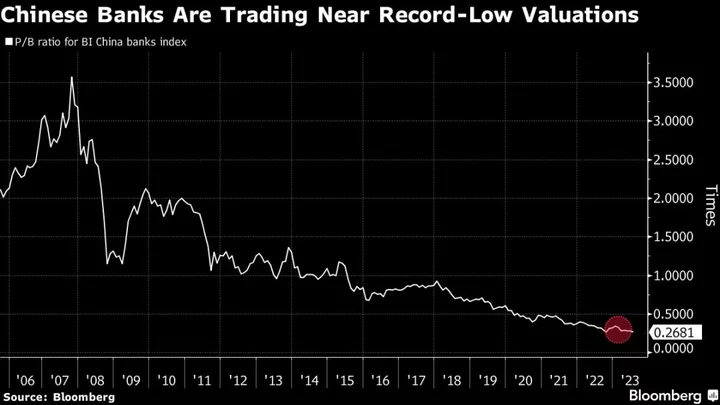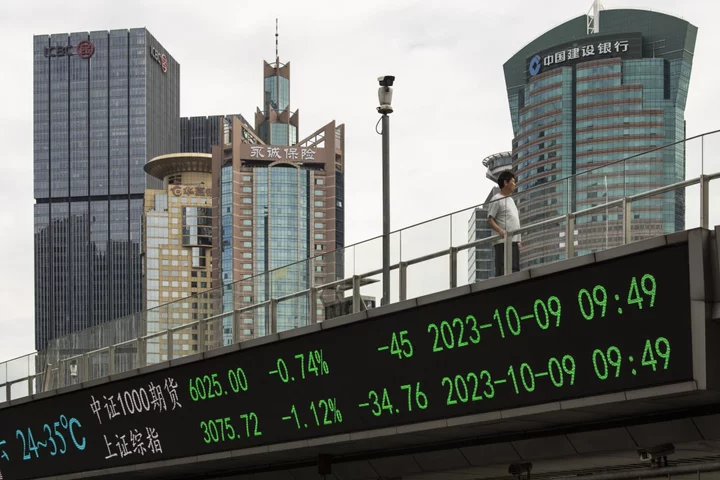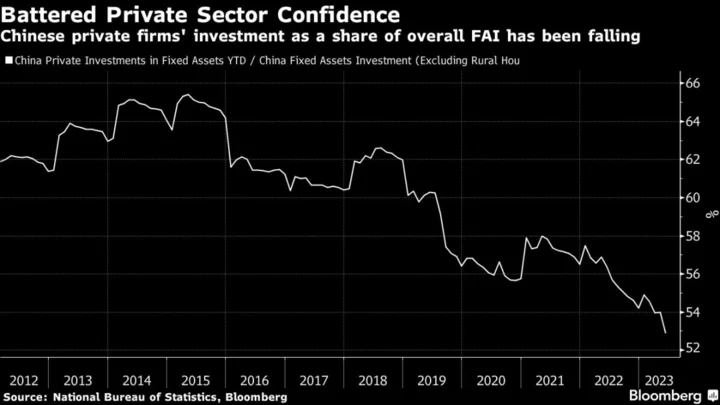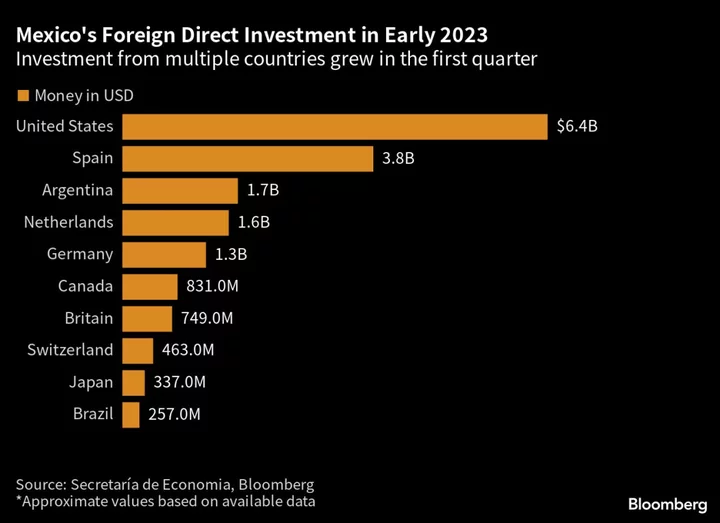Investors in Chinese bank stocks are getting a painful reminder of who’s likely to bear the brunt of government efforts to shore up the embattled real estate sector and revive economic growth.
A Bloomberg Intelligence stock index of Chinese lenders has tumbled 14% from this year’s high in May through Monday’s close, erasing $77 billion of market capitalization and leaving the industry’s shares on the cusp of their lowest-ever valuations.
Already under pressure from Beijing’s monetary loosening and tepid loan demand, concerns about banks have heightened after authorities asked lenders to extend loan relief for developers as a housing crisis continues. Some Wall Street banks also have turned cautious, with Goldman Sachs Group Inc. taking a bearish view on the sector, a move that drew a rare rebuttal from a state-run Chinese newspaper last week.
The Bloomberg Intelligence gauge of Chinese bank stocks is trading at 0.27 times book value, just a whisker away from late October’s record low. That compares with 0.9 times for a global bank gauge.
The extension of relief measures for developers “will likely provide more of a sentiment boost to investors without fundamentally easing investors’ concern on commercial banks’ credit risk on troubled developers,” Citigroup Inc. analysts including Griffin Chan wrote in a note. Banks with high mortgage exposure could be more vulnerable, they added.
Regulators said late Monday they have asked banks to ease terms for real estate firms by encouraging negotiations to extend outstanding loans, a move that aims to ensure the delivery of homes still under construction. Some outstanding loans — including trust loans due by the end of 2024 — will be given a one-year repayment extension, they said.
Chinese commercial banks’ net interest margin slid to a record low of 1.74% in March, according to data from the National Financial Regulatory Commission, below the 1.8% threshold deemed necessary to maintain reasonable profitability.









